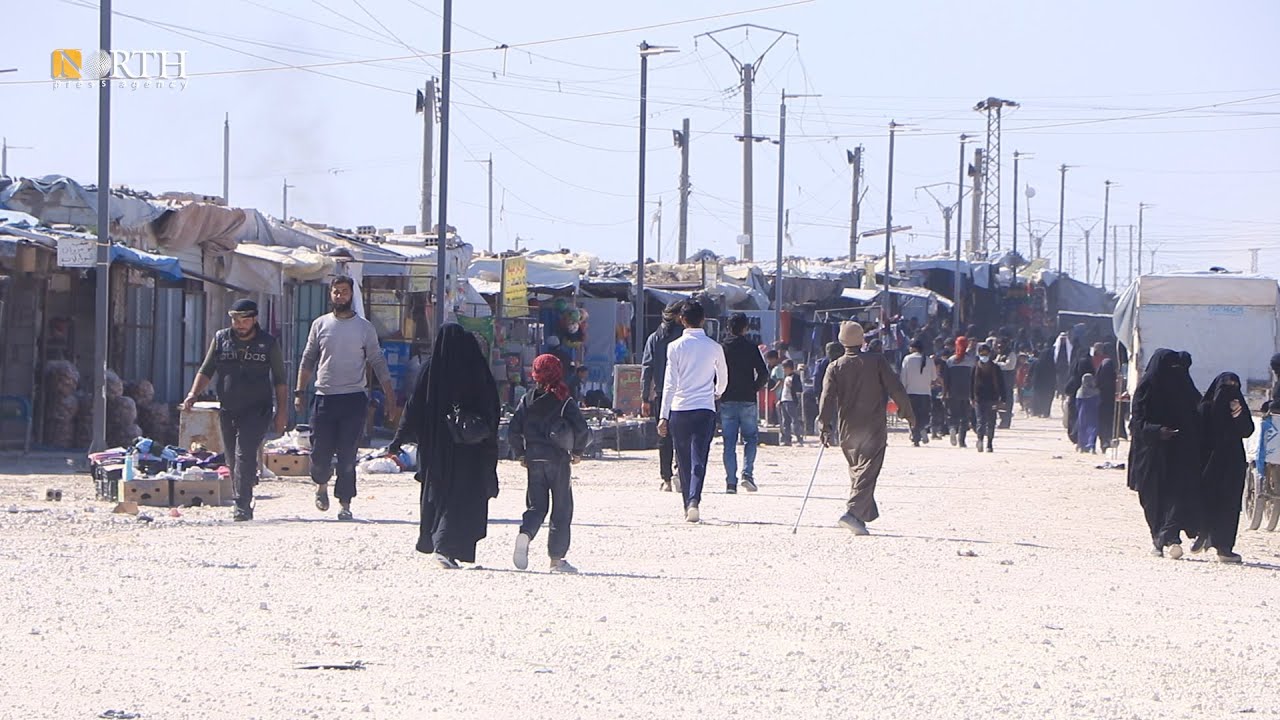Iraq reveals mechanism for repatriating nationals from Syria
ERBIL, KRG, Iraq (North Press) – On Sunday, the Iraqi Ministry of Migration revealed a mechanism for repatriating its nationals from Hawl Camp, northeast Syria, in coordination with the Syrian Democratic Forces (SDF), while urged the international community to do the same, given the dangerousness of the camp.
Iraq is considered one of the first countries that repatriated its nationals from Hawl Camp, which is located in the east of the city of Hasakah near the Iraqi border and includes thousands of families and detainees of dozens of nationalities, who joined the Islamic State (ISIS).
Officials of the Autonomous Administration of North and East Syria (AANES) criticized the performance of the foreign states for the repatriation of their nationals who are ISIS families’ members.
Ali Abbas, the spokesperson for the Iraqi Ministry of Immigration, told North Press that the issue of Hawl Camp is very important, and the ministry and government have paid great attention to it, as it contains approximately 31,000 people of Iraqi nationality.
“Hawl Camp shelters 23,676 non-Syrian underage children. The majority of them are Iraqis,” Hamrin Hassan, director of Hawl Camp told North Press.
Hassan added that 56,000 individuals are in the camp, of which 36,000 are minors.
Since the beginning of 2019 until 2021, the AANES handed over 995 children and women who are members of ISIS foreigners to their countries, according to official statistic.
Last year, Abbas added that a joint committee was formed from National Security, Joint Operations, and the Ministry of Immigration to set up a mechanism for the repatriation of Iraqis.
“Indeed, a security committee was formed to visit the camp and meet with Iraqi families in coordination with the SDF,” he noted.
Early this March, a well informed source told North Press that an Iraqi delegation arrived in northeastern Syria, including delegates from the Iraqi Ministry of Foreign Affairs and the cabinet, in coordination with the SDF.
The purpose of the Iraqi delegation’s visit was to review the status of Hawl Camp and to establish a mechanism to identify the families that are allowed to return to Iraq.
“Four trips left Hawl Camp, included 450 families, who were transferred to al-Jada’a Center in Nineveh Governorate for psychological and social rehabilitation,” Abbas stated.
He indicated that the returnees were subjected to rehabilitation programs supported by international organizations, and they had achieved positive results.
Some of these families that had undergone rehabilitation programs were returned to their areas in Iraq in coordination with the notables and the concerned authorities in the regions inside Iraq.
“Three years ago, an Iraqi delegation visited northeast Syria and called for a cooperation to repatriate 32,000 Iraqi refugees from the camps and the Iraqi members of ISIS families,” vice-president of the AANES Department of Foreign Relations Fanar al-Gait told North Press.
Al-Gait pointed out that measures were delayed due to bureaucratic procedures and reasons related to the Iraqi authorities.
Iraq is still coordinating with the camps management to repatriate their nationals but the majority of the Iraqis refuse to return.
Abbas noted to the possibility of transferring another 500 families from the camp to the country, but so far the final procedure has not been reached due to the impact of the ministerial change on the workflow.
Abbas stressed Iraq’s keenness to return all its nationals from the camp, regardless of their affiliation with ISIS, as there will be security and judicial institutions that will take charge of their affairs.
“As for the others who have not been proven to have security problems or any link to ISIS, they will be returned through a certain mechanism to their areas,” he added.
Abbas said that his country is interested in its nationals in Hawl Camp, and that the government urges the international community to work to repatriate all nationals out of the camp.
He stressed Iraq’s interest in the camp, as it poses a threat to Iraqi national security, recalling ISIS’s ongoing activity, especially in prisons from time to time.

